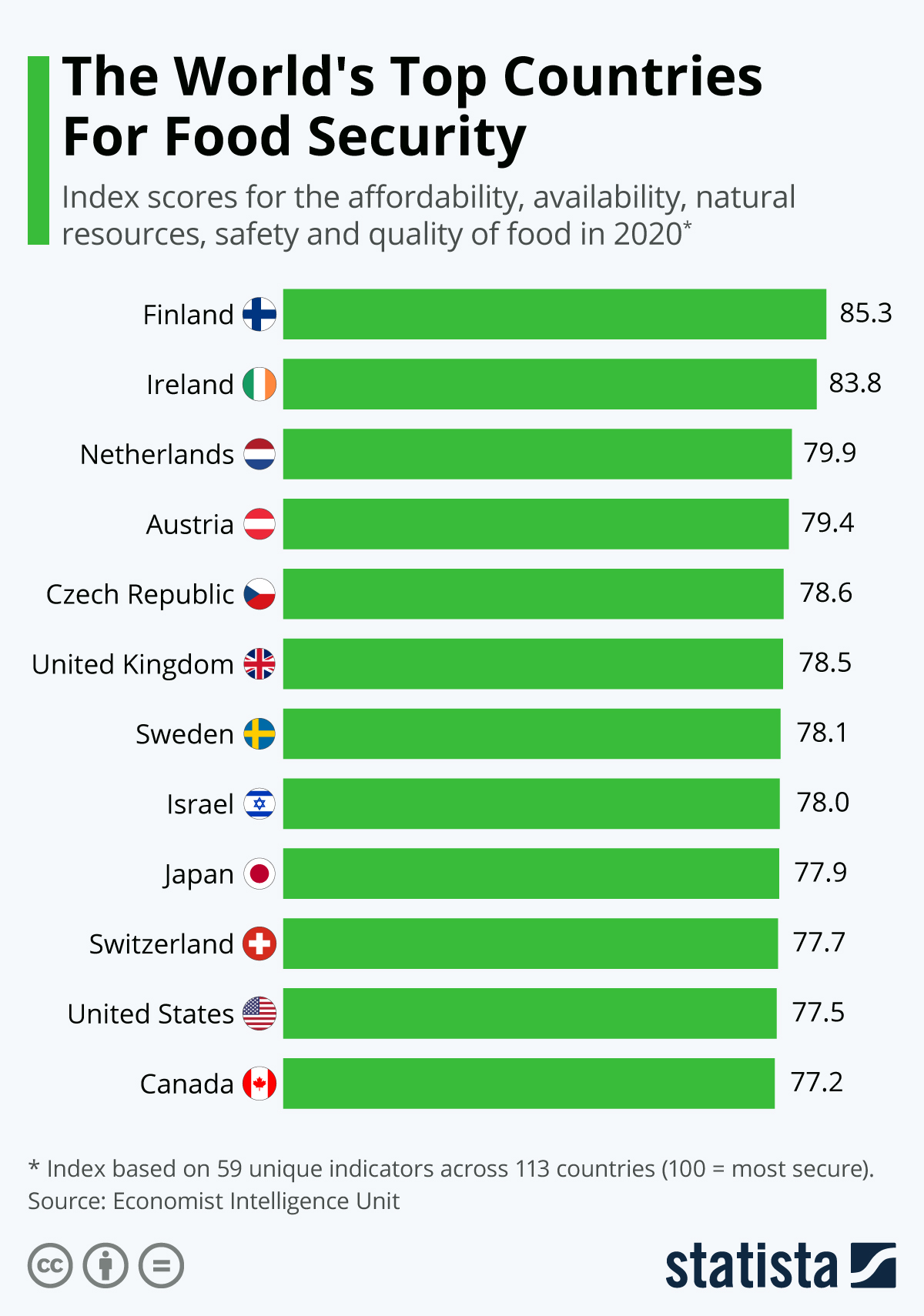Many of the countries that experienced waves of panic-buying at the start of the pandemic that resulted in empty supermarket shelves actually have some of the highest levels of food security on the planet. Back when Covid-19 struck, supermarkets witnessed chaotic scenes as customers bought bulk quantities of pasta, rice and other essential food items. That soaring level of demand did not mean there were actual food shortages but rather supply bottlenecks as demand exceeded supply. One year later, the pressure on supermarkets has eased, though problems with global food security persist.
According to the 2020 Global Food Security Index which was compiled by The Economist on behalf of Corteva, global food security is continuing to deteriorate across the world due to a combination of factors, primarily intensive farming and climate change. While there were strains on global food systems prior to the pandemic, Covid-19 has exacerbated existing problems, making life even more difficult for farmers. The Global Food Security Index is based on 59 unique indicators and it measures the state of food affordability, availability, quality, safety and natural resources/resilience in 113 countries. Finland was named the top country for food security in 2020, ahead of Ireland and the Netherlands. Despite problems caused by Brexit, the United Kingdom was ranked 6th while the United States and Canada came 11th and 12th, respectively.




















